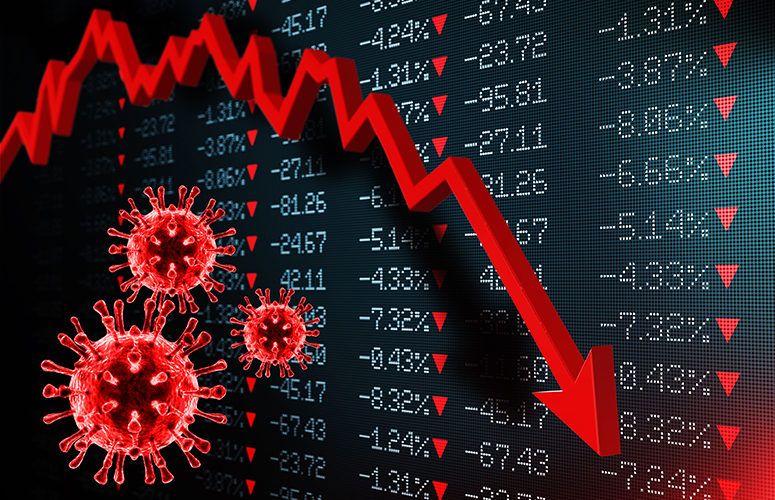THE ECONOMIC IMPACT OF COVID-19
The world at this point is fighting a battle against a disease that has been labelled as novel coronavirus, also known as COVID-19. This disease is a threat not only to the lives of people all over the world but also to the global economy. The officials of public health are still determining the impact of this virus on human life, its characteristics, and its cure. The public is extremely scared because of the virus and worried regarding the future. The reaction of the public will play a major part in the economic impact.

As the number of cases increased, maximum countries started observing lockdown. The Centres also released few guidelines for Disease Control and Prevention (CDC). The guidelines included home isolation, home quarantine, social distancing, and other environmental sanitization measures. Countries that implemented similar guidelines are expected to follow a mild economic impact. In countries where stricter measures are followed could cause a significant impact on the economy.
Channels through which it will affect the economy
There are three channels which will affect the economy:
- Direct effect on production: it has affected the production process in various countries because of the substantial and complete lockdown in various places. Insufficient production will have a direct impact on the export business of countries. As we all know, China is one of the biggest exporter countries. According to the World Bank, even if there is no recent outbreak of the virus still the countries are likely to undergo slow growth in the year 2020.
- Market disturbance and supply chain: many countries rely on raw materials and intermediate goods from other countries. Because of the deceleration in the economic activities and various transportation restrictions, countries will experience an impact on production and profitability. This impact will be seen, especially in manufacturing. I have presumed it that surviving this disruption will be more difficult for small- and medium-sized businesses.
- The financial effect on the financial market and firms: the disruptions in the market might create stress on firms with inadequate liquidity. Because of the vulnerability of the firms, the traders may not understand the financial market well. This situation will increase the risk in the market, resulting in less profit and less trust in the instruments and the market. There also remains the possibility of a clear decline in the corporate bond and equity market, as the investors might opt for holding back the securities because of the uncertainty because of the pandemic.
COVID-19 and the global growth
According to the International Monetary Fund (IMF), 3% is the expected shrink of the global economy. This results from several countries resorting to lockdowns to flatten the curve of the disease. The lockdown meant ceasing almost all economic activities, closing business, and confining people to their residence. Countries are now gradually lifting the restriction and restarting the economies.
- Industrial metals: because of the lockdown in Asia, the US, and Europe, there have been recognised a reduction of demand for the metal. China almost accounts for 50% of the global demand.
- Oil and Natural Gas: this pandemic resulted in the restriction of travel which has affected the industrial activities. Oil prices have fallen. The demand for natural gas has also decreased as the transportation activities were at its lowest.
- Food and beverages: the IMF has expected a decrease in the price of food by almost 2% as the lockdown has resulted in disruption in the supply chain, delays, export restrictions, and concern over the security of food. It was noticed that the price of vegetables, cereals, seafood, etc. increased while the price of meat, cotton, tea decreased.



